Publications
Search publications
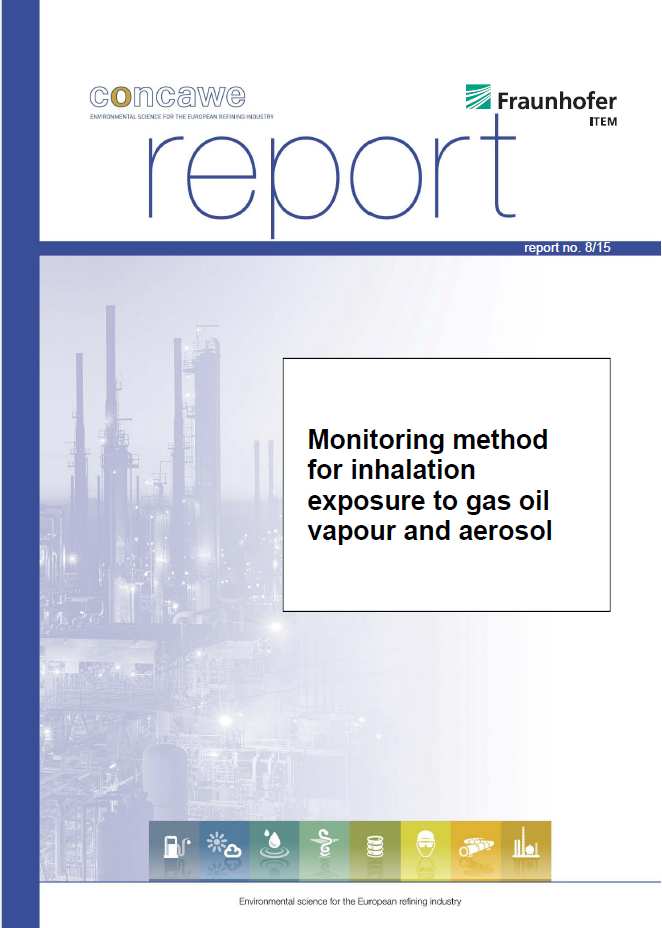
December 17, 2015
Monitoring method for inhalation exposure to gas oil vapour and aerosol
Report no. 8/15: A study was conducted to characterize sampling and analysis methods for the measurement of the personal workplace exposure concentration of gas oil vapours and aerosols and in particu...
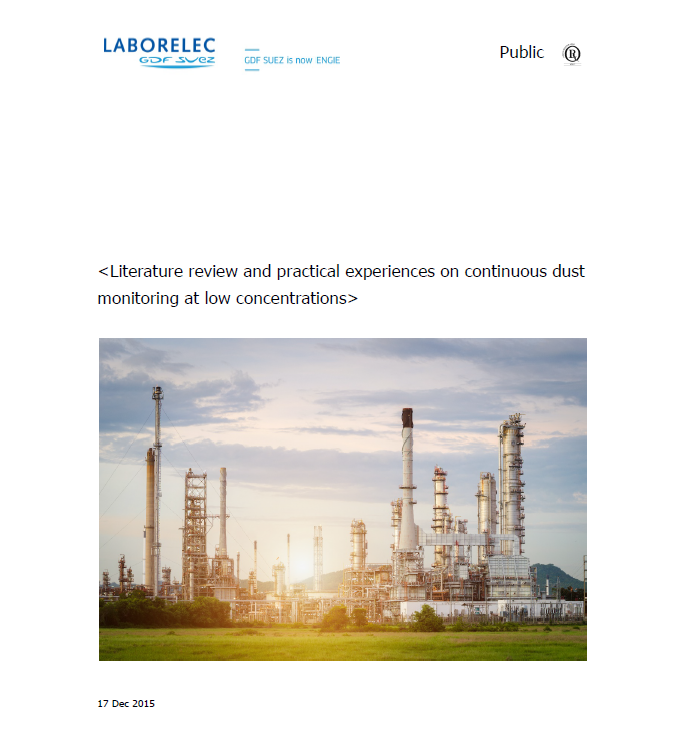
December 17, 2015
Literature review and practical experiences on continous dust monitoring at low concentrations
This report reviews the techniques available for the measurement of dust from gas-firing combustion in refineries and identifies challenges associated with the continuous monitoring of these dust emis...
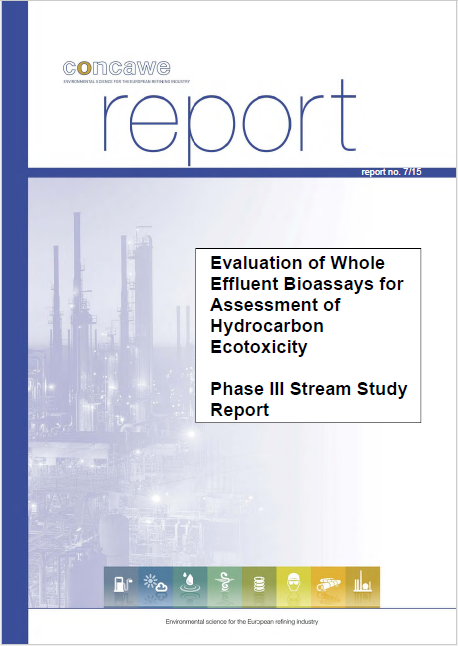
December 11, 2015
Evaluation of Whole Effluent Bioassays for Assessment of Hydrocarbon Ecotoxicity – Phase III Stream Study
Report no. 7/15: Toxicity predictions based on laboratory- based Whole Effluent Toxicity (WET) tests have been assessed by dosing outdoor stream mesocosms with unmodified and fortified refinery efflue...

October 5, 2015
Techniques for detecting and quantifying fugitive emissions – results of comparative field studies
Report no. 6/15: Sniffing and Optical Gas Imaging (OGI) methods for the detection of refinery fugitive VOC emissions were compared under field conditions. Both of these methods are described as Best A...

September 28, 2015
Statistical summary of reported incidents – 2014
Report no. 5/15: In this twenty-first annual report on European downstream oil industry safety performance, 2014 statistics are presented on work-related personal injuries for the industry’s own emp...
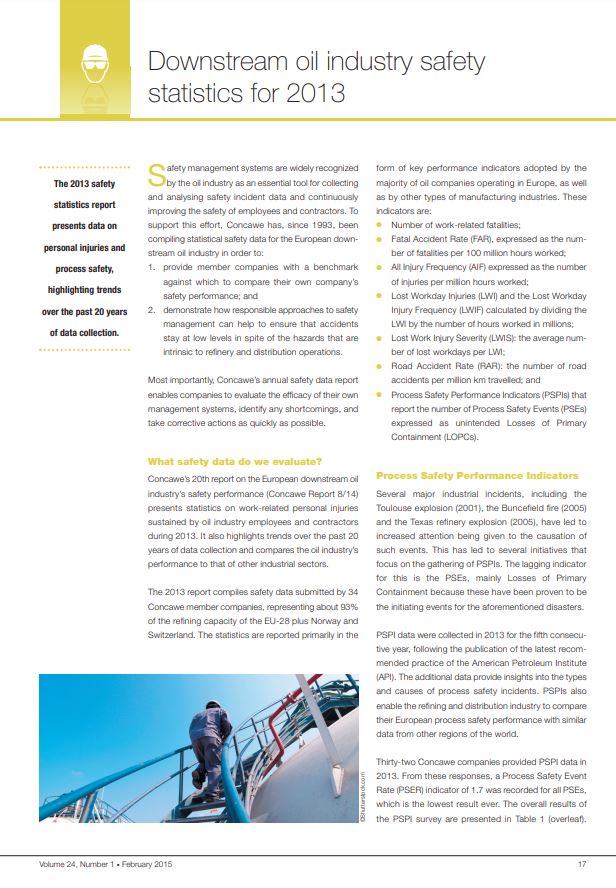
May 8, 2015
Downstream oil industry safety statistics for 2013
Safety management systems are widely recognized by the oil industry as an essential tool for collecting and analysing safety incident data and continuously improving the safety of employees and contra...
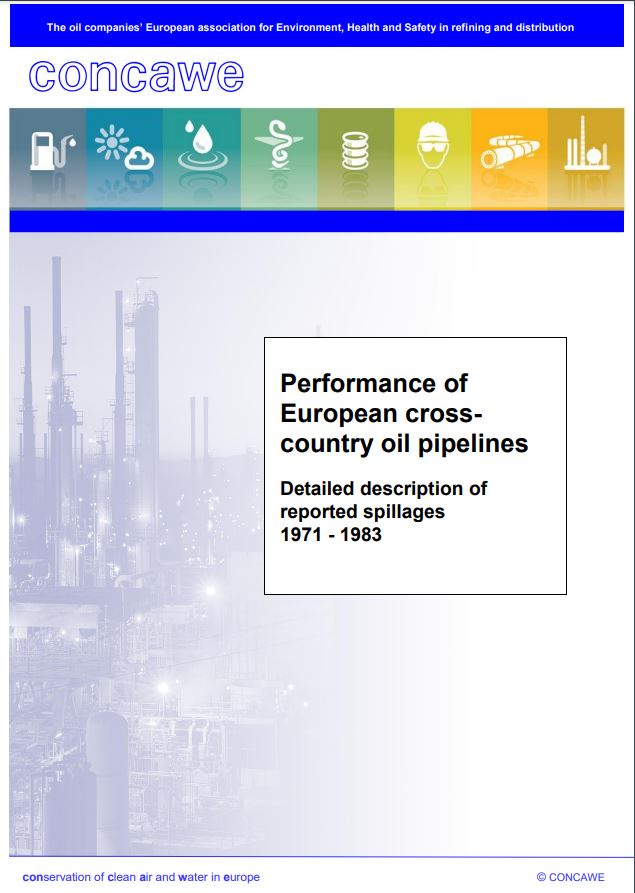
May 6, 2015
Performance of European cross-country oil pipelines (1971-1983)
Detailed description of reported spillages 1971-1983. Twenty-one spillages were reported during 1972 and these are itemised in detail in Appendix I, and further tabulated in categories and volumetric...
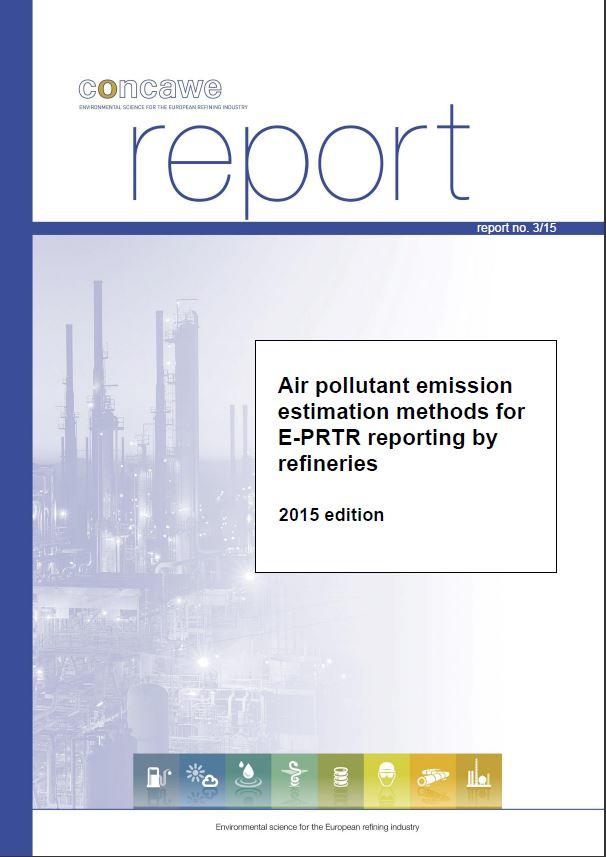
April 28, 2015
Air pollutant emission estimation methods for E-PRTR reporting by refineries
Report no. 3/15: This report is an update of the Concawe publication “Air Pollutant Emission Estimation Methods for EPER and PRTR Reporting by Refineries”.
It provides algorithms to permit emi...
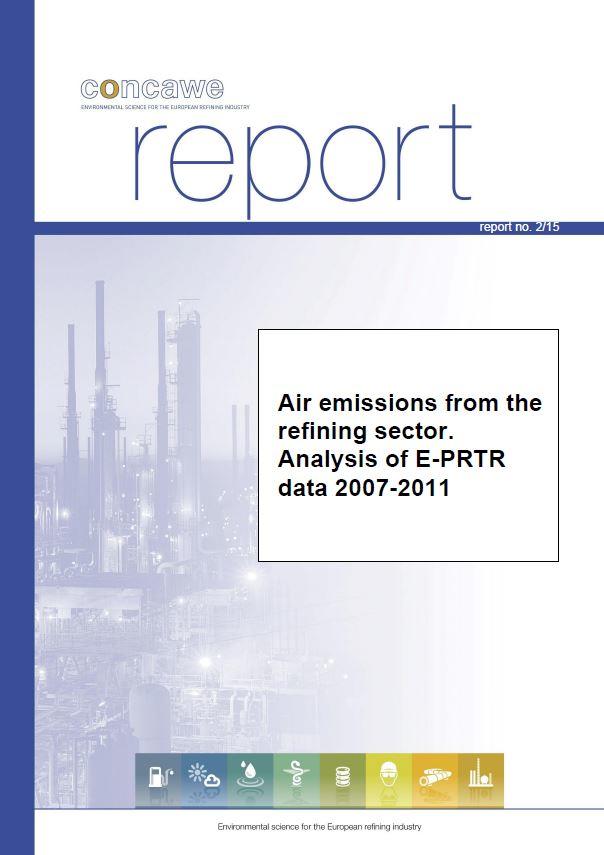
April 2, 2015
Air emissions from the refining sector. Analysis of E-PRTR data 2007-2011
Report no. 2/15: This report provides a review of the air pollutant emissions data submitted by national authorities for oil refineries in the E-PRTR from 2007 to 2011.
Detailed analyses are given...
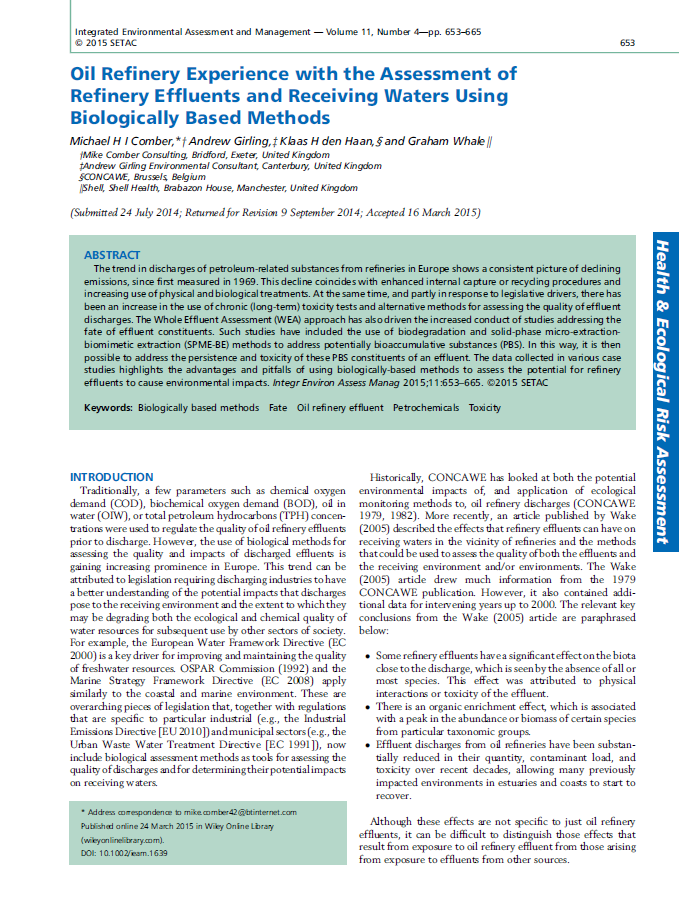
March 24, 2015
Oil refinery experience with the assessment of refinery effluents and receiving waters using biologically based methods
The trend in discharges of petroleum‐related substances from refineries in Europe shows a consistent picture of declining emissions, since first measured in 1969. This decline coincides with enhan...
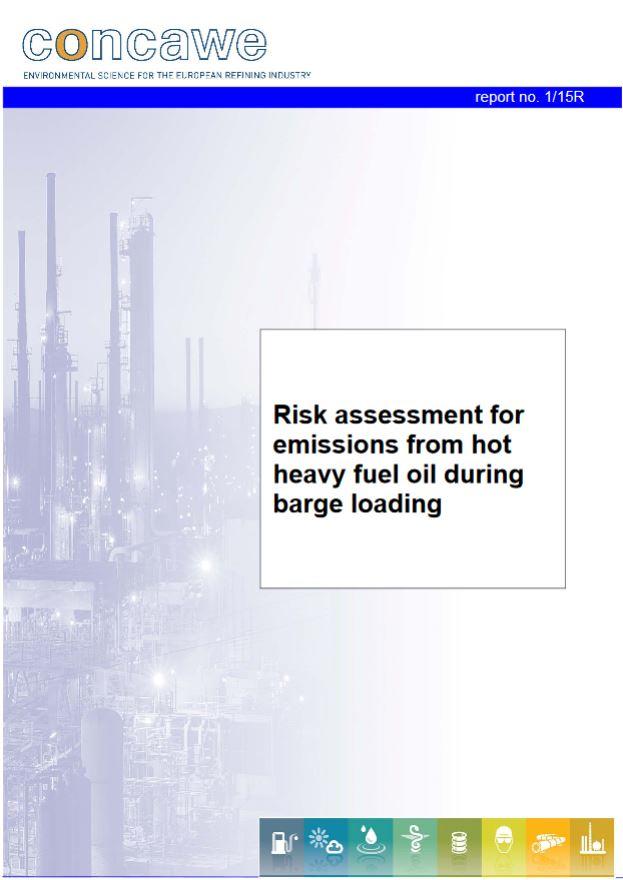
March 19, 2015
Risk assessment for emissions from hot heavy fuel oil during barge loading
Report no. 1/15R: A series of emissions, occupational exposures, and mutagenic hazard studies were conducted to assess the risk associated with the loading of commercial Heavy Fuel Oils onto barges on...
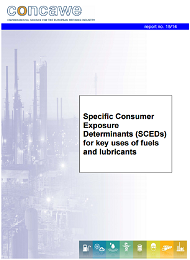
March 14, 2015
Specific Consumer Exposure Determinants (SCEDs) for key uses of fuels and lubricants
Report no. 15/14: Under the REACH regulation, registrants are required to demonstrate the absence of significant risk when consumers are exposed to their registered substances. To do this, the Europea...
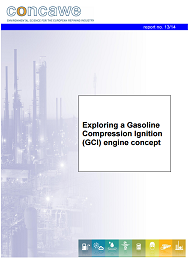
March 12, 2015
Exploring a Gasoline Compression Ignition (GCI) engine concept
Report no. 13/14: This report describes initial engineering and experimental steps to assess the potential to improve efficiency and reduce both regulated and CO2 emissions, and maintain acceptable no...

March 12, 2015
Concawe Review 24.1
The articles in this Concawe Review describes on ongoing work by Concawe to further contribute to the safety of everyone working in our industry, to improve the environmental performance in the manufa...
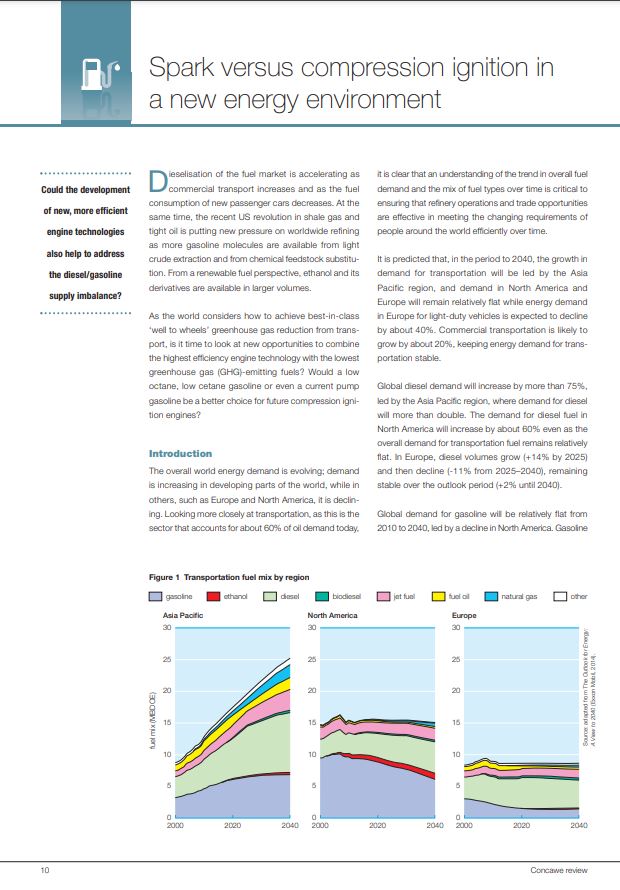
March 12, 2015
Spark versus compression ignition in a new energy environment
Dieselisation of the fuel market is accelerating as commercial transport increases and as the fuel consumption of new passenger cars decreases. At the same time, the recent US revolution in shale gas...
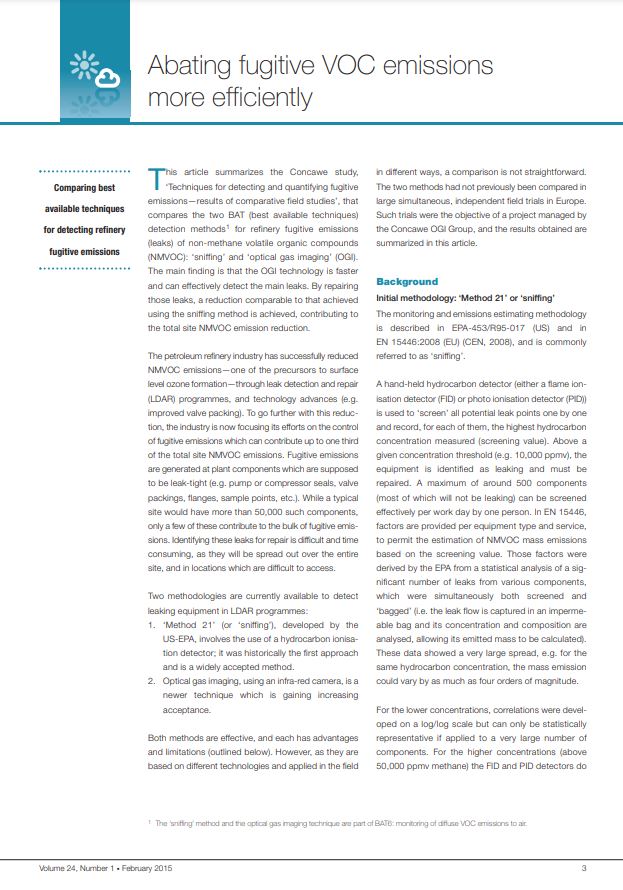
March 12, 2015
Abating fugitive VOC emissions more efficiently
This article summarizes the Concawe study, ‘Techniques for detecting and quantifying fugitive emissions—results of comparative field studies’, that compares the two BAT (best available technique...
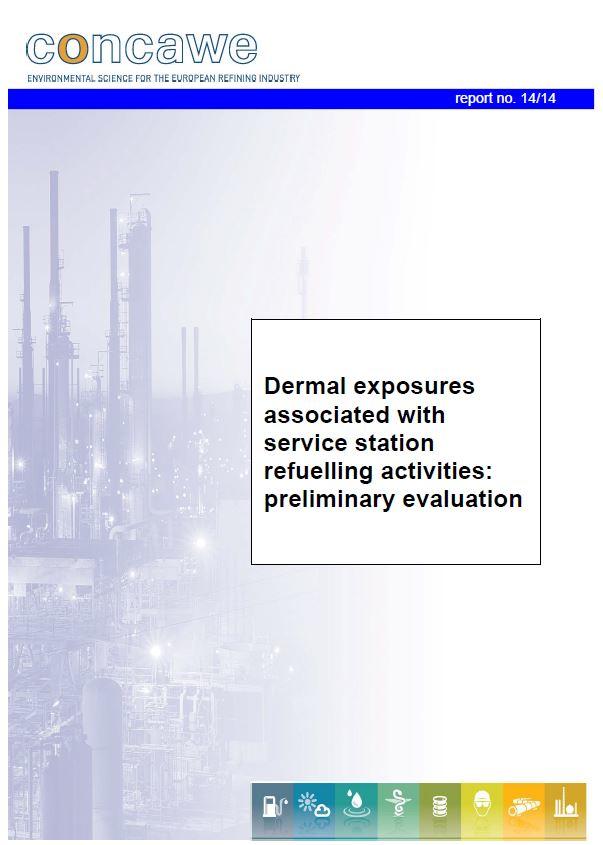
March 12, 2015
Dermal exposures associated with service station refuelling activities: preliminary evaluation
Report no. 14/14: This study investigates dermal exposure to petrol and diesel fuel in service station attendants responsible for the refuelling of automobiles. In phase 1 of the study, six attendants...
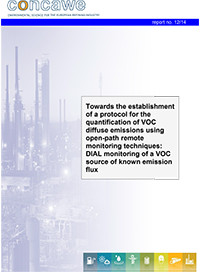
December 8, 2014
Towards the establishment of a protocol for the quantification of VOC diffuse emissions using open-path remote monitoring techniques: DIAL monitoring of a VOC source of known emission flux
Report no. 12/14: This report provides the results of a programme of work undertaken to compare the controlled rate of release of propane from a simulated floating roof tank with the flux determined u...
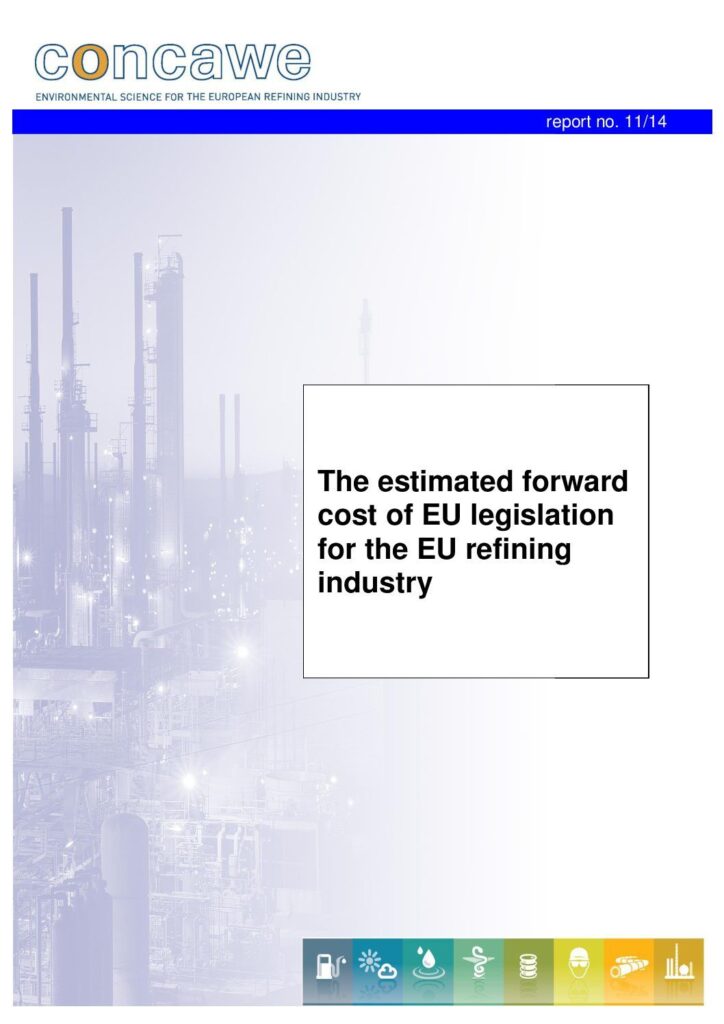
November 8, 2014
The estimated forward cost of EU legislation for the EU refining industry
Report no. 11/14: This Concawe report provides an estimation of the cost burden imposed on EU refineries over the period from 2010 to 2020 by a number of EU legislative and implementing acts.
It is...
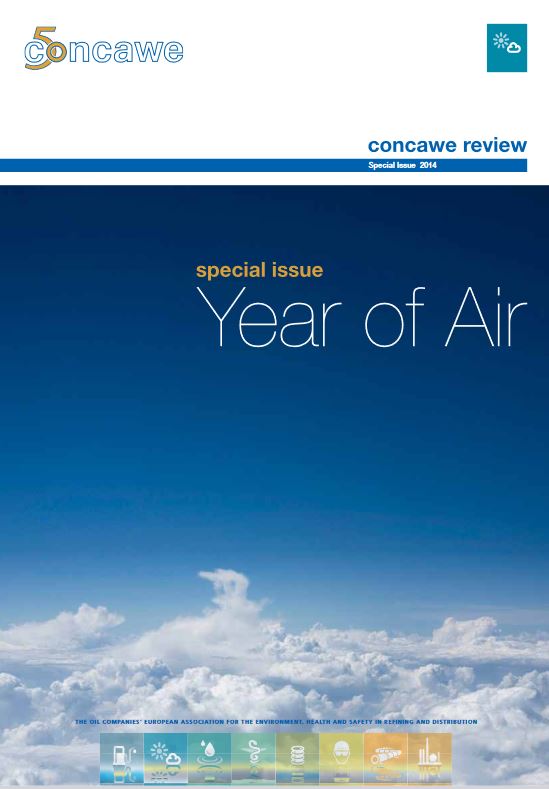
October 23, 2014
CONCAWE Review – Year of air 2014 (special issue)
The Thematic Strategy on Air Pollution (2005) has been under review since 2011 with the first of five stakeholder meetings taking place in January 2012. The underpinning work is very complex and rel...
Subscribe to publications
You can subscribe here to receive notifications about new Concawe publications (Technical Reports and the Concawe Review)